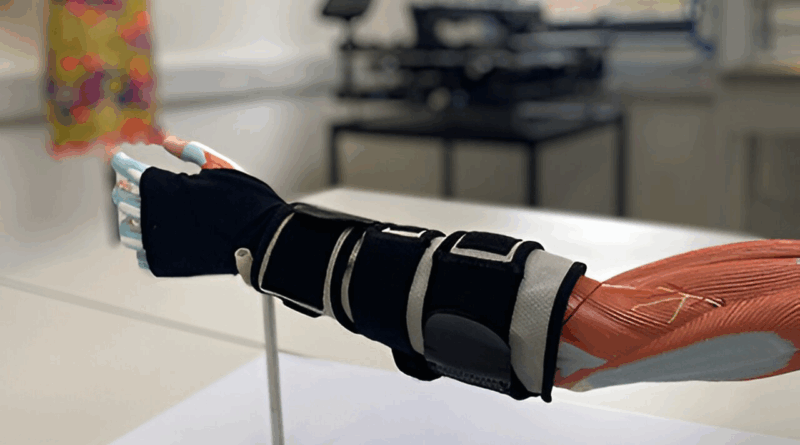The Pulse of Recovery: How a Smart Glove is Redefining Stroke Rehabilitation
Every year, millions survive a stroke—but survival often comes with a cruel price. Hand paralysis, muscle weakness, and impaired mobility leave many unable to perform the simplest tasks: buttoning a shirt, holding a pen, or lifting a glass of water. According to the Global Burden of Disease 2025, more than 93 million people worldwide live with the effects of stroke, with 7.25 million lives lost annually. For those who endure, the greater battle begins not in hospitals but in the long, lonely corridors of rehabilitation.
In India, that struggle is finding a new ally. At IIT Hyderabad’s innovation hub, a young deep-tech company—Sense Health Technologies—has created a device that could transform the very nature of recovery: a lightweight, sensor-integrated glove designed for post-stroke rehabilitation. It is not a bulky exoskeleton or an expensive robot. It is, instead, something deceptively simple—a glove that learns, measures, and assists, bringing therapy to the patient’s fingertips.
Inside its soft fabric are sensors that track every bend of a finger, every attempt at grip, every tremor of muscle. The glove operates in two modes. In assessment mode, it records mobility, grip strength, and neuromuscular activity, translating effort into real-time progress scores. In assistance mode, it gently supports the hand through guided movements, acting like a physiotherapist’s invisible hand. Behind it all are AI algorithms that analyze data, detect irregularities, and adapt therapy to the individual’s needs.
The true genius, however, lies not just in the hardware but in its ecosystem. Data flows securely to the cloud, visualized in a simple mobile app where patients can see their progress and doctors can remotely fine-tune therapy. Rehabilitation, once bound to clinic walls, now extends into homes, rural communities, and everyday life.
Early trials suggest accuracy comparable to hospital protocols, but with an accessibility that could revolutionize care. For millions in India’s remote towns, where physiotherapy is scarce, such technology may mean the difference between dependence and dignity. Sense Health Technologies is now piloting deployments and preparing for global markets, seeking to prove that the road to independence can begin with something as unassuming as a glove.
In an age where gadgets are often about convenience, this one is about hope. A stroke may steal movement in an instant, but with science stitched into fabric, recovery is learning to move again—one finger, one grip, one life at a time.





